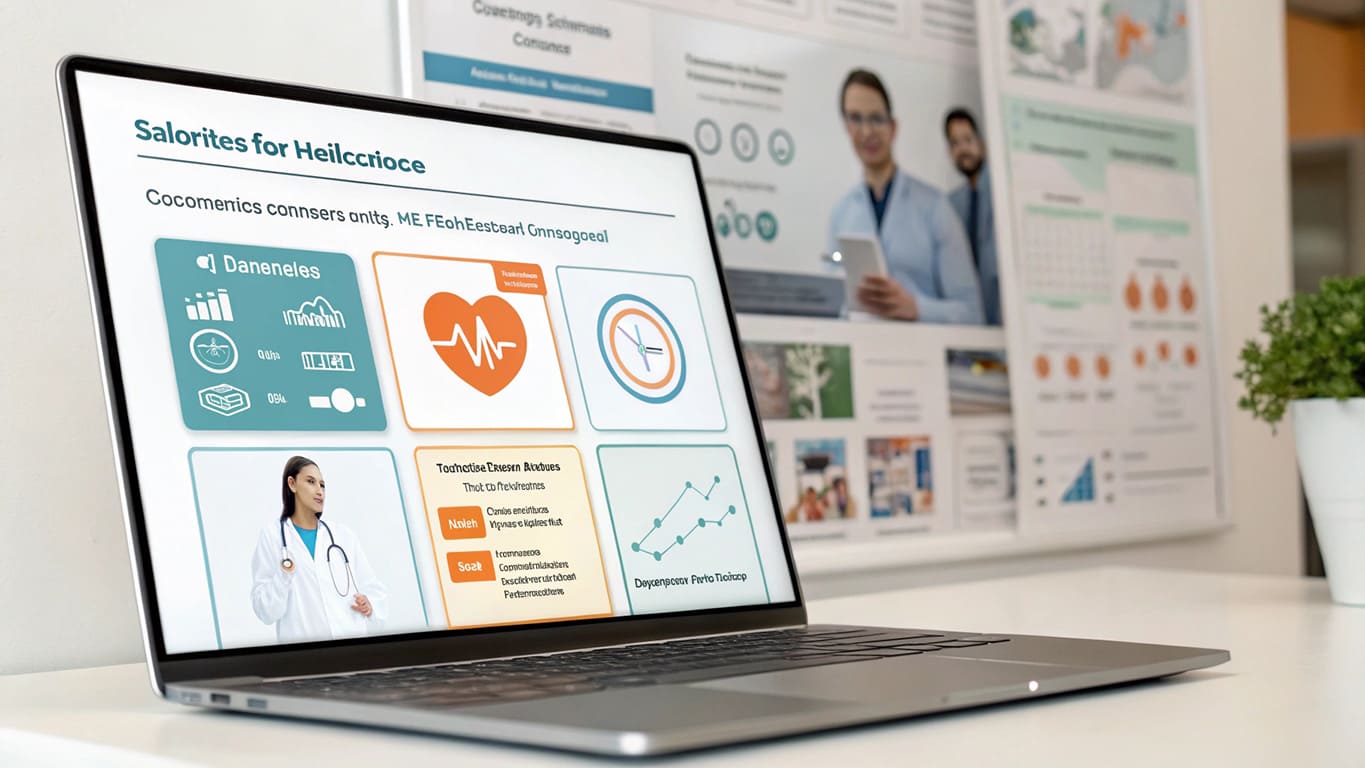Are you struggling with fragmented patient data and compliance headaches in your healthcare organization? If managing patient information securely while delivering personalized care sounds overwhelming, you’re not alone. Healthcare providers today face complex challenges in aggregating patient data from various sources, ensuring regulatory compliance, and delivering seamless, personalized healthcare experiences.
Salesforce Healthcare is transforming how providers achieve a unified patient 360 view and stay HIPAA compliant — all while enhancing patient engagement and operational efficiency. By leveraging advanced CRM capabilities optimized for healthcare needs, Salesforce Healthcare unites clinical, operational, and administrative data to enable smarter decision-making and regulatory adherence. In this post, we’ll dive into practical use cases and benefits that can help your healthcare practice thrive in 2025 and beyond.
Understanding Patient 360 in Salesforce Healthcare
The concept of patient 360 is a game-changer for healthcare providers. It refers to a comprehensive, real-time view of an individual patient’s health journey, consolidated across multiple data touchpoints. Salesforce Healthcare excels in creating this unified patient profile by integrating data across electronic health records (EHR), payer systems, patient portals, and even third-party devices.
Components of Patient 360
- Demographics: Basic patient information such as age, gender, ethnicity, and contact details.
- Medical History: Chronic conditions, prior diagnoses, medications, allergies, lab results, and imaging data.
- Interactions: Clinical visits, telehealth consultations, messaging history, and care plans.
- Payer Details: Insurance status, authorizations, claim submissions, and payment history.
Benefits of a Patient 360 View
- Personalized Care: Clinicians can tailor treatment plans based on a full, contextual understanding of patient data.
- Improved Outcomes: Unified insights enable proactive interventions, reducing hospital readmissions and adverse events.
- Streamlined Workflows: Eliminates data silos and manual reconciliation, freeing clinicians to focus on patient care.
Examples of Patient 360 in Action
Imagine a diabetic patient whose blood glucose readings from a wearable device automatically feed into Salesforce’s patient profile. When data trends suggest rising risk, the care team receives alerts, enabling timely outreach. Meanwhile, the patient portal shows up-to-date care plans, and claims data ensure benefits are verified—delivering an end-to-end connected experience.
Organizations like Cedars-Sinai and Mayo Clinic have implemented Salesforce’s patient 360 solutions to increase care team coordination and reduce care gaps. These real-world adopters highlight how integrating Salesforce Healthcare drives safer, more efficient, and transparent care delivery.
Ensuring HIPAA Compliance with Salesforce Healthcare
Security and privacy are paramount in healthcare technology. Salesforce Healthcare is designed with HIPAA compliance in mind, offering tools that safeguard patient data confidentiality while ensuring auditability and regulatory adherence.
Built-in Compliance Features and Encryption Standards
Salesforce employs robust encryption during data transit and at rest, aligned with FIPS 140-2 standards. This multi-layered encryption safeguards Electronic Protected Health Information (ePHI) against unauthorized access or breaches. Furthermore, Salesforce regularly undergoes independent audits to validate compliance with HIPAA Security and Privacy Rules.
Role-Based Access and Data Segregation
Salesforce’s flexible security model allows granular, role-based access control (RBAC). Healthcare organizations can set precise permissions—ensuring only authorized users view or modify sensitive data. Coupled with data segmentation, this minimizes risk by isolating ePHI to appropriate user groups, such as physicians, billing staff, or case managers.
Audit Trails and Reporting Functionalities
Salesforce maintains comprehensive audit logs that record data access, changes, and system activity. These logs are critical for HIPAA compliance, providing transparency and accountability. Healthcare administrators can generate reports to monitor suspicious access patterns or policy breaches proactively.
Steps to Configure Salesforce for HIPAA Adherence
- Enable Shield Encryption: Activate Salesforce Shield to encrypt critical fields and platform data.
- Implement RBAC: Define user profiles and permission sets aligned with HIPAA policies.
- Activate Field Audit Trail: Keep historical records of changes to sensitive patient data.
- Configure Event Monitoring: Track login times, API usage, and data access events.
- Train Staff on Compliance: Ensure users understand policies and procedures regarding ePHI.
By following these steps and leveraging Salesforce’s security architecture, healthcare organizations can confidently meet HIPAA regulations and protect patient privacy.
Salesforce Use Cases in Healthcare Organizations
Beyond compliance and patient data unification, Salesforce Healthcare delivers practical solutions across many areas, improving operational efficiency and patient experiences.
Patient Outreach and Engagement Campaigns
With Salesforce Marketing Cloud and Health Cloud combined, providers can automate personalized outreach campaigns based on patient data insights. For example, reminders for annual screenings, immunizations, or chronic disease management can be targeted precisely, boosting patient adherence and satisfaction.
Care Team Collaboration and Case Management
Salesforce Healthcare supports multidisciplinary team collaboration via shared care plans, task management, and real-time messaging within a HIPAA-compliant environment. Care coordinators can assign tasks, track progress, and document patient interactions in a centralized platform, eliminating communication breakdowns.
Referral and Appointment Scheduling Automation
Scheduling tools integrated into Salesforce reduce no-shows and simplify referral workflows. Automated appointment reminders and confirmations via SMS or email minimize administrative burden, while seamless data sharing between primary care and specialists accelerates patient transitions.
Analytics for Population Health Management
Salesforce’s analytics capabilities allow health systems to identify high-risk patient cohorts, monitor preventive care uptake, and analyze health disparities. Population health teams can utilize dashboards that aggregate clinical, social, and financial determinants, enabling targeted interventions and value-based care outcomes.
These use cases demonstrate how Salesforce Healthcare enhances every step of the patient journey, from engagement to outcome measurement.
Emerging Trends and Advanced Strategies in Salesforce Healthcare
As healthcare technology evolves, Salesforce continues innovating to support next-gen care models.
Integration with IoT and Wearable Devices for Real-Time Monitoring
In 2025, connecting IoT devices and wearables—such as glucose monitors, heart rate sensors, and fitness trackers—to Salesforce enables continuous patient monitoring. This real-time data stream supports early detection of complications and personalized alerts, moving healthcare closer to preventive, rather than reactive, care.
AI and Predictive Analytics to Identify Patient Risks
Salesforce Einstein’s AI capabilities power predictive models that identify patients at risk of hospitalization, medication non-adherence, or disease progression. By analyzing historical and live data, providers can prioritize high-impact interventions, improving clinical outcomes and reducing costs.
Mobile Solutions Enhancing Provider-Patient Communication
Mobile apps built natively on Salesforce’s platform empower providers with full patient profiles on the go, while patients benefit from secure messaging, telehealth visits, and appointment scheduling at their fingertips. This accessibility supports timely, flexible care delivery beyond clinic walls.
Scaling Patient 360 with Cloud and Interoperability Initiatives
Salesforce’s cloud-based architecture enables scalable patient 360 implementations that integrate seamlessly with external health IT systems via FHIR and HL7 standards. This interoperability promotes data fluidity across care networks, payers, and community resources—essential for holistic population health management.
By adopting these trends, healthcare organizations position themselves at the forefront of digital transformation, driving smarter and more efficient care delivery.
Conclusion
Salesforce Healthcare offers powerful tools to unify patient data, ensure HIPAA compliance, and optimize healthcare delivery. Its patient 360 capabilities empower providers with comprehensive, real-time insights; its robust security features guarantee data privacy; and its versatile use cases prove vital across patient engagement, care coordination, and analytics.
For healthcare providers seeking a trusted partner in navigating these complexities, WildnetEdge stands out as an experienced authority. With deep expertise in Salesforce Healthcare consulting, implementation, and customization, WildnetEdge helps organizations maximize their Salesforce investment—ensuring compliance while driving measurable operational and clinical impact.
Ready to transform your healthcare practice? Connect with WildnetEdge and take the first step toward smarter patient care powered by Salesforce.
FAQs
Q1: How does Salesforce Healthcare provide a complete patient 360 view?
Salesforce Healthcare consolidates patient data from multiple sources—including EHRs, payer systems, and wearables—into a unified profile. This enables providers to access comprehensive, real-time patient information necessary for informed care decisions.
Q2: What features in Salesforce help maintain HIPAA compliance?
Salesforce incorporates encryption, role-based access controls, audit trails, and customizable security settings designed to meet HIPAA regulations and protect sensitive patient data.
Q3: What are common use cases of Salesforce in healthcare organizations?
Common use cases include managing patient engagement campaigns, enabling collaborative care coordination, automating referral and appointment scheduling, and leveraging analytics for population health management.
Q4: Can Salesforce Healthcare integrate with other health technologies?
Yes, Salesforce supports integration with EHR systems, IoT devices, AI tools, and interoperability standards like FHIR, enabling seamless data exchange and advanced patient insights.
Q5: How does WildnetEdge support healthcare organizations using Salesforce?
WildnetEdge provides expert consulting, tailored Salesforce implementations, and ongoing support, helping healthcare providers maximize their Salesforce platform while ensuring regulatory compliance and operational efficiency.

Managing Director (MD) Nitin Agarwal is a veteran in custom software development. He is fascinated by how software can turn ideas into real-world solutions. With extensive experience designing scalable and efficient systems, he focuses on creating software that delivers tangible results. Nitin enjoys exploring emerging technologies, taking on challenging projects, and mentoring teams to bring ideas to life. He believes that good software is not just about code; it’s about understanding problems and creating value for users. For him, great software combines thoughtful design, clever engineering, and a clear understanding of the problems it’s meant to solve.
 sales@wildnetedge.com
sales@wildnetedge.com +1 (212) 901 8616
+1 (212) 901 8616 +1 (437) 225-7733
+1 (437) 225-7733















 ChatGPT Development & Enablement
ChatGPT Development & Enablement Hire AI & ChatGPT Experts
Hire AI & ChatGPT Experts ChatGPT Apps by Industry
ChatGPT Apps by Industry ChatGPT Blog
ChatGPT Blog ChatGPT Case study
ChatGPT Case study AI Development Services
AI Development Services Industry AI Solutions
Industry AI Solutions AI Consulting & Research
AI Consulting & Research Automation & Intelligence
Automation & Intelligence













